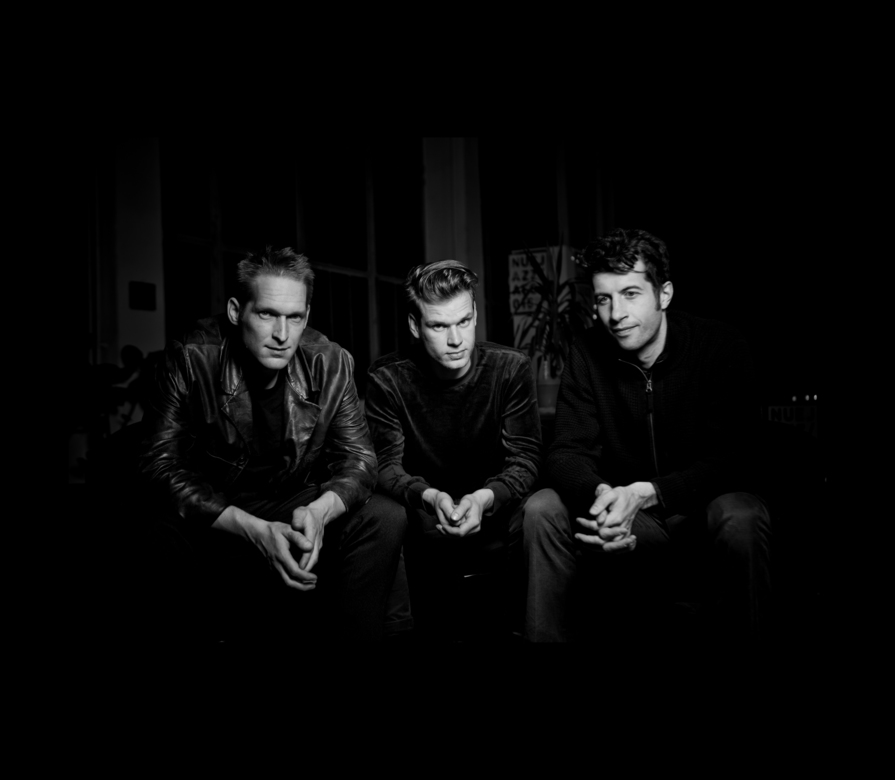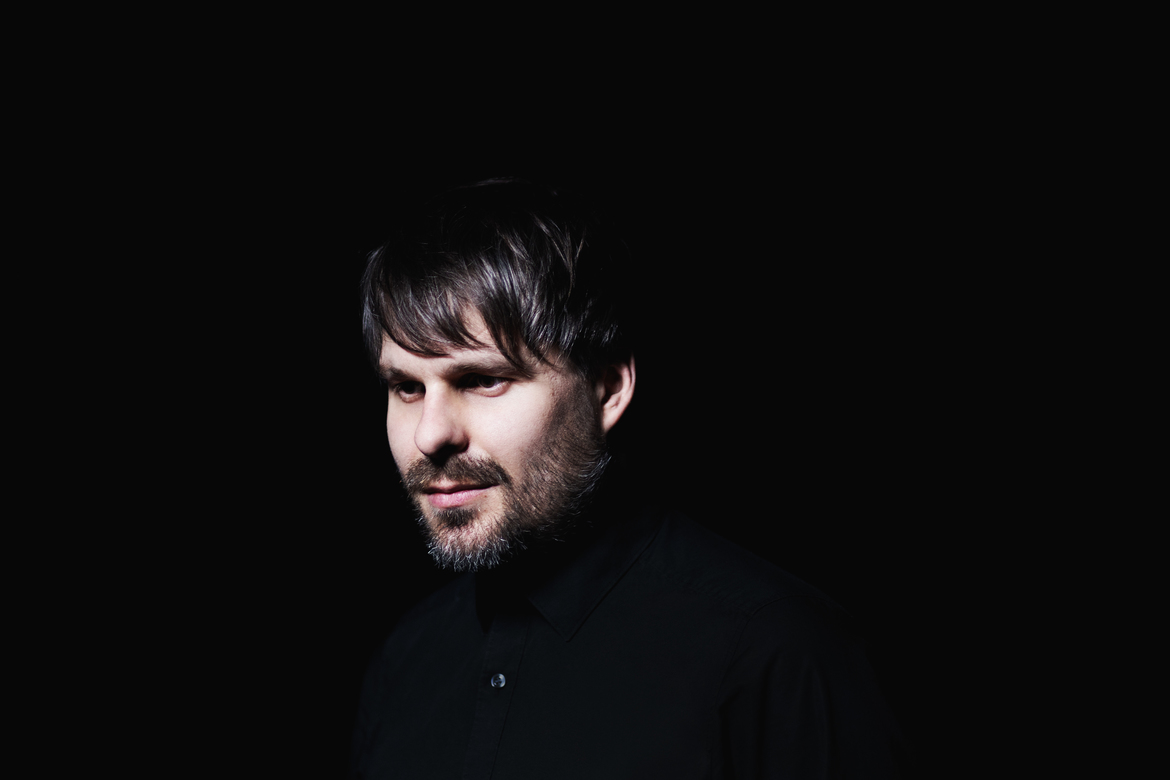WhyPlayJazz goes New York - Portrait in der September Ausgabe des New York City Jazz Records
18.09.2016
Auch über dem großen Teich hat man das kleine feine Label wahrgenommen. Ken Waxman, der schon lange begeisterter Beobachter von WPJ ist, stellt das Label in der Zeitschrift "The New York City Jazz Record" vor. Zu Wort kommen Labelgründer Roland Schulz sowie die beiden Musiker Benjamin Weidekamp und Philipp Gropper:
Only rarely do you hear stories about instant conversions when exposed to jazz. But it does happen. A transformation like this led to the birth of Germany’s WhyPlayJazz (WPJ) label in 2005. As Roland Schulz, who describes himself as WPJ’s Chief Officer In Charge of Everything, elaborates: “In 2004 my former girlfriend dragged me to my first-ever encounter with jazz in my hometown Greifswald. On stage were Carsten Daerr [piano], Christian Lillinger [drums], Johannes Fink [bass] and Philipp Gropper [tenor saxophone]—aka SONNE. Until then I thought jazz was only boring elevator music. But what I saw and heard that night on stage was something completely new. It was a kind of enlightenment. After the concert I asked Philipp if I could buy a CD with the music I just listened to. He said ‘no’ and I replied: ‘Then we have to make a CD.’”
Not only was this revelation the genesis of WPJ, but also a regular concert series, which Schulz organizes in Greifswald, a small city about 200 kilometers northeast of Berlin. “I wanted more people to experience the same eye-opening experience as I had during the SONNE concert,” he elaborates. “I wanted this kind of music spread out to the world.” At the same time Schulz, who runs a software development company with eight employees, knew that a jazz label was no ticket to commercial gain. “But that didn’t matter,” he exults. “The only thing that mattered was the music and the joy it gave to me.”
Schulz now divides his week between his software firm and WPJ, finally adding to the latter’s one-man operation by hiring a part-time PR person earlier this year. “Since 2005 I’ve spent thousands of Euros for the music and I’ve never regretted it,” he notes. “To work on WPJ and with such great artists is a perfect replacement for vacations and other useless things you can spend your money on.”
Saxophonist Benjamin Weidekamp, who is on four WPJ CDs and has others ready for release, explains his loyalty to the imprint in a comparable fashion: “In 2011 my quartet played a concert in Greifswald and some weeks after the gig Roland called and said he thought there should be a CD of our music. Since there wasn’t one, we should record one and he would release it. The other guys and I decided to take this tremendous opportunity to be part of a young label with a guy of our age running it and build something together. I really enjoy the company of the other artists on WPJ and I have a good personal connection with Roland. I like the small catalogue and that I can identify myself with most of the other music.”
Although the number of WPJ releases has fluctuated over the years, Schulz expects it will now standardize to about five to eight annually. “In the early years it was learning-by-doing, pause, reconsider, looking for musicians and trying to convince them to release on WPJ,” he recalls. “It’s comparable to developing a friendship. It doesn’t happen overnight.” One part of the WPJ story is the trio Gropper/Graupe/ Lillinger, formerly called Hyperactive Kid, consisting of Gropper (seven WPJ releases); Lillinger (two WPJ CDs) and guitarist Ronny Graupe (four). “I like their attitude, their musical style,” Schulz elaborates.
“I’m very happy to see more fantastic colleagues recognized the label as a good way to release their music with the greatest amount of artistic freedom,” echoes Gropper. “These are good times for the Berlin scene—more and more musicians from all over are moving here—and it’s interesting for listeners to find a label documenting this fortunate direction the Berlin scene is taking.” With modern musicians constantly traveling, adds the saxophonist, it isn’t odd that WPJ documents the Berlin scene from afar. Still, starting this year, Schulz makes it a point to visit the German capital every week or so. “I want to stay in contact with the recording artists, enjoy concerts with them or find out about someone new to me,” he clarifies. These contacts helped expand WPJ’s roster past the German border, most notably to Denmark. “The Danish connection exists since 2006 through [bassist] Andreas Lang, [drummer] Kasper Tom and [trumpeter] Mads la Cour,” says Schulz. “Tom lived for years in Berlin and Lang still lives there.”
Before 2016, WPJ only thrived because of cash injections from Schulz himself, he freely admits. But he also says that “it looks like this year could be the first with a black zero at the end.” WPJ’s operating method is simple as well. Almost all the label’s releases have been manufactured after the musicians give WPJ completed masters. “From then on WPJ manages licensing, design, pressing, promotion, distribution etc. “In this niche it’s very difficult, or nearly impossible, to generate profit—for labels and musicians alike,” notes Schulz.
“I record for many labels as a sideman. Very few pay an artist for recording and most of those who do has never been a situation in which he tried to have an influence on an artistic statement.” What does Schulz bring to a session? “Pizza, sometimes ice cream and, of course, his camera,” jokes Weidekamp. “He really takes good care of the band and the sound engineer.” Confirms Gropper: “He’s very open-minded and lets the musicians decide where and how to record.” That’s why although there’s no written exclusivity agreement with musicians who record for WPJ, “I have a kind of ‘gentleman’s agreement’, for example, with Philipp Gropper and Benjamin Weidekamp for their main projects,” says Schulz.
What about using various formats? “Mainly the releases come out on CD,” says Schulz. “[Saxophonist] Wanja Slavin’s For Very Sad and Very Tired Lotus Eaters was also on LP, because the budget was there. The last Hyperactive Kid disc was vinyl only; la Cour’s Almugi release was supported with two digital-only variants because there was no budget to release three CDs at once. The vinyl thing is at the moment on hold, because sales are negligible.” All WPJ discs are available as download from iTunes. Plus if someone orders a CD from the WPJ website a download is bundled in with the purchase. “However, I have the feeling that streaming hurts CD sales and ruins the already small financial rewards received by the artist and the label,” he states.
Schulz continues to proselytize for advanced jazz, albeit with mixed results. “My current girlfriend listens to jazz, but more of the conventional kind. I try to guide her and the kids, who are three- and four-year- old girls, carefully into the WPJ rabbit hole. Sometimes though the kids make noise with stuff they find and tell me: ‘Roland, look, we’re playing jazz music.’”
http://www.nycjazzrecord.com/issues/tnycjr201609.pdf
http://www.jazzword.com/one-review/?id=129130

